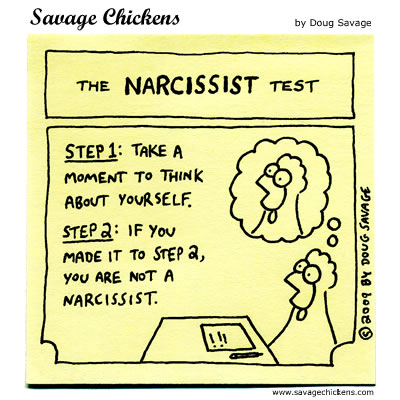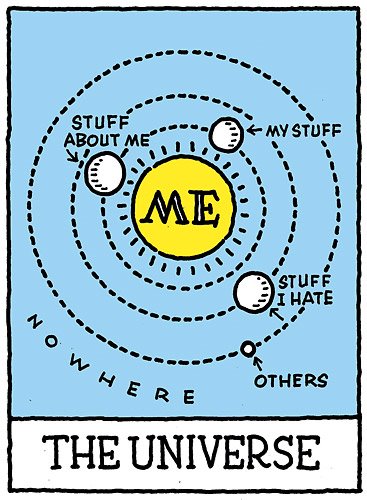I think I accidentally published this for a few hours so some of you may have already read this. Now I discovered that I accidentally kept it in draft mode. I’m such a scatterbrain! Sigh.
Sorry we haven’t started the radio show yet, guys. We’re going to air as part of the Live Paranormal Radio Network and its producer has been besieged by bad luck: first a serious car accident and now a terrible flu. Poor guy. Send your prayers and healing energy. We have to set up production, create a show page with graphics, insert the intro, create an outro and complete some other things before we launch. Hopefully bad things don’t come in threes for the guy! I can assure you, though, that the wait will be worth it. You know how Erik rolls! My advice to you is to think of a question to ask during the show and try to get on as soon as you can. I’ll let you know when and where when I have the details.
I’m thinking of doing another interview of either Jesus or one of our alien buddies like a Tall White. What do you guys think? I know I have almost 400 interviewees on my list, but those two were just so dang compelling and fun. I might have to ask you guys to help me think of some more questions. It seems like I asked pretty much everything I could come up with!
Many of you have looked at the Denver itinerary, and I wanted to let you know that Kim and Erik are going to include the topic of grief when they discuss the spiritual basis of mental illness. Many of you were led to this blog through loss and tears, and for some, your grief interferes with your daily functioning. I, for one, consider myself to have a mental illness because of Erik’s death, specifically complex grief disorder with PTSD and major depressive disorder, so understanding all the spiritual facets of my pain is part of what’s necessary for significant healing. My question is this: how often does the grief over a loss end up as a mental illness? I don’t know the answer to that, but it’s probably more frequent than people realize.
Enjoy Part Two of Erik’s insight about the ego. Be sure you watch the Abraham-Hicks channeling with blog members, Kari Mena and Allison Allen (the medium) at the bottom of the page. Apparently, Abraham invited the CE family to call on “them.”
Me: What makes an unhealthy ego? Is the degree of separation deeper? What is it?
Erik: What makes anything unhealthy? What makes food unhealthy? Poor choices, right? Not enough or too much.
Me: Yeah, too little ego is not good either. That’s true.
Erik: Right. So when we’re looking at it, it’s knowing that the “I” is important but also part of the Whole.
Me: So that’s what balances it.
Erik: Yes.
Me: Okay, so would it be bad for us to be geocentric in this life? Isn’t it good to feel like you’re connected to some degree with everything?
Erik: Geocentric like figuring out the location of where you are? No, that’s not bad. All the Asians do it, but if you mean stepping away from ego completely? Is that bad?
Me: Oh yeah. I know that’s bad.
Erik: Yeah, I would say yes. If you were looking for a more specific term for how to connect to the Whole or to what we would call a geocentric environment, I’d do that more with emotions rather than anything else. Not so much a visual thing, but an emotional thing.
Me: So, what would you tell someone with too little ego and someone with too much ego? What should they do? Let’s start with the big egos, the assholes.
Erik: You said it, not me!
Me: I swear that came from you! I channeled it from you! I swear to god that came out of nowhere. You put it in my head, so I’ll blame you!
Jamie laughs hard.
Erik: The big ones. The assholes. They can’t see anyone else’s emotional value, input or needs as being supreme, better than. They put themselves in the ultimate lead in every situation whether they belong there or not.
Me: Well, what can they do?
Erik: What can they do? Therapy. Sometimes medication. Commonly—
(Long pause)
Jamie (To Erik): Explain that. (Pause) No, let’s talk about—okay. This is cool.
Erik: The ones that are born with it, like they have that or the parents teach them and they go with it—therapy works best because then they can discuss it and identify how to connect with somebody and that they’re safe doing so. Like surrendering time and let someone talk and actually listen to them doesn’t make them weaker or less valuable. So therapy. Sometimes medication is needed so that they can step back because their head is so wound tight.
Jamie: He loves marijuana for this, but he would attach it to therapy and learning.
Erik: Narcissistic people love to learn and to be right so that’s an easy way to go. This is the second layer to being a narcissist: There are ones that know they’re being narcissistic. They just know. They’re identifying it, but not all the time. Not with every single person. They only do that with a few. These are people who lack the ability to put a boundary in place, and they use this narcissism as a tactic like a protection thing. You can identify them because they’re like, “Oh, I know this is narcissistic, but…” and they’ll throw it out there anyways. Those are easier to address because they’ve already played both sides of the fence. They just need to recognize that there are easier ways to set a boundary and know that they have the confidence and the right to say no to somebody instead of playing too big for their britches.
Me: Okay.
Erik: Then you have the ones that disconnect. We can call them super geocentric. It’s not just about directions. It’s about believing that there really is no “I,” that they’re totally a part of the Whole and they have no power. So why should they vote? Why should they even make a difference because they’re just along for this great big ride? Then all of a sudden, they have a life that they have to manage and survive during instead of just living, because they’ve completely surrendered any kind of choice or action because, “Hay-ul. Life is going to just take it from them and do it for them.”
Jamie laughs.
Jamie: He had this twang thing. It was funny!
Me: Yeah, you started out with a southern drawl!
Jamie: It was a “Hay-ul” and then he went right into it with the twang.
Erik: Not to say that southern people are like that more than northern people. I just thought it was funny. What can happen here is working through having a voice, being confident, learning self-expression. So I would look at what brings the passion out of you. What are you really attracted to? What pulls at you? Then I would say, ‘Go fucking do that shit!’ whether it’s art or plants—it might not be something you might identify as “changing the world” even though every fucking thing you do changes the world. People don’t like to believe that, right? They want to give the power to the ones in control, that they’re the ones that make the choices that change the world. That’s not necessarily true. Energy, power lies in all of us.
Jamie: He cocks his head. He feels very confident about that one.
Erik: I am!
Jamie giggles.
Jamie: There you go. A little ego dose for you.
Me: There we go. You still have a bit of an ego. That’s good. I mean, you can have as much or as little ego as you want, right? You can create a strong sense of separation or you can meld with All that Is or anywhere in between. It’s your choice, right?
Erik: Yes. When I have my Erik panties on—
Jamie and I laugh.
Jamie: “Erik panties!”
Me: You got your big boy Erik panties on today?
Jamie: He’s not a brief wearer.
Me: No.
Jamie: He’s telling me that.
Me: It’s either boxers or commando if he hasn’t done his laundry.
Jamie laughs.
Erik: When I have my Erik panties on, I try very strongly to keep my ego really healthy and very involved because I believe, in my position, Mom that really speaks to the humanness of all of this. That’s why we fucking do this. It’s not super easy, one, to communicate to people because most of them are so fucking difficult. A lot of them believe they’re very open. “Oh, I’m so open. I’m open to anything!” but right underneath the sign “open” they have “expectations,” “assumptions.” All these things they want to have fucking done, but oh no, they’re “open.” So it’s not easy to talk to people, and then to come in with the hard hitting language and the bluntness, you know, the denser vibrational words that I throw down in their fucking face. That’s not easy either, but look at the results. It’s so much more fun for me. It’s more tangible, and I see people walking away saying, “I fucking identify with that guy. I know that guy, Erik. I can see his identity. I can see part of his ego. I can see what he’s trying to teach and where he’s coming from.” But if I came in with like, (making a yoga like pose with his hands by creating a ring with his index fingers and thumbs) holy fucking loving everyone—
Jamie (laughing): Wow, he can really do that. (She bends her four fingers back as far as she can.) I guess that takes a lot of practice. His fingers go way back.
Erik: I am dead, Jamie.
We laugh.
Jamie: Yeah, I can’t do it.
Erik: Then people would go, “Mm hm. Yeah, that’s a nice thing to strive for, but hey, buddy, we’re living on Earth. Nice to watch that movie, but I’m not in it.”
Me: Yeah, he’s not one of those, “Welcome my dear ones” ethereal mountaintop gurus.
Jamie (laughing): He thinks that’s very funny. Oh there’s this big fog in my room right now.
Me: Wow, what’s that?
Jamie (To Erik): What are you doing?
Me: He’s probably smoking.
Jamie: Are you smoking!
Erik: No! It’s my energy.
Jamie: It’s really pretty. It’s a fog.
Erik rotates his body to and fro, acting like a little girl who’s just been praised.
Me: I guess the ego was also, in its most primitive form, important for survival. You have to have an ego for survival, right?
Erik: Mm hm.
Me: Can you say something about that?
Erik: I think you said that very well. The ego helps you identify the “I.” “I need. I’m hungry. I’m this. I’m that.”
Me: “I need to run away from that tiger. I don’t want to be eaten.”
Erik: Yes!
Jamie laughs.
Me: Okay. Anything else on ego?
Erik: Nope. Ding!
Me: Ding!
I love these cartoons. Hope you do, too!
Don’t forget to pencil the Dear Prudence Show into your schedule. It’s this coming Monday, 2/8 from 11:00 AM- 12:00 PM CT. Click HERE to listen live and feel free to call in and ask Erik questions via this number: 858-947-1909. I think the host, Amanda Grieme, wants Erik to bring in David Bowie for further questions. Have a wonderful weekend!
Last, enjoy this YouTube of Kari Mena and Alison Allen in their interview of Abraham-Hicks. Great questions, Kari! Wonderful channeling, Alison!





